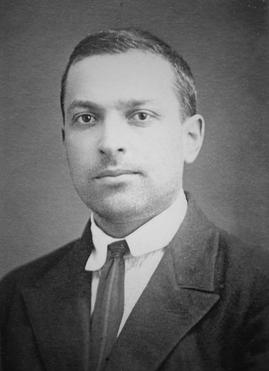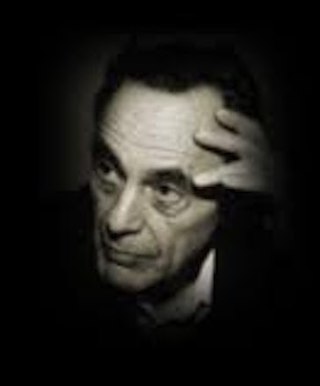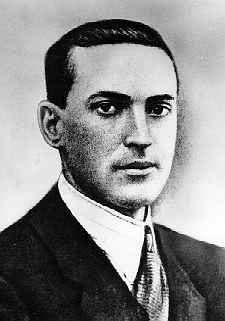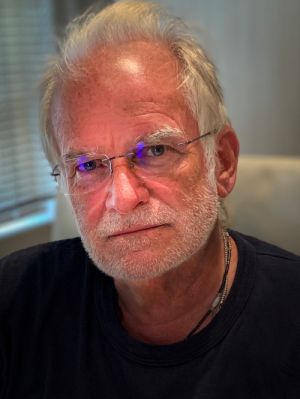Related Research Articles
Psychotherapy is the use of psychological methods,particularly when based on regular personal interaction,to help a person change behavior,increase happiness,and overcome problems. Psychotherapy aims to improve an individual's well-being and mental health,to resolve or mitigate troublesome behaviors,beliefs,compulsions,thoughts,or emotions,and to improve relationships and social skills. Numerous types of psychotherapy have been designed either for individual adults,families,or children and adolescents. Certain types of psychotherapy are considered evidence-based for treating some diagnosed mental disorders;other types have been criticized as pseudoscience.
Group psychotherapy or group therapy is a form of psychotherapy in which one or more therapists treat a small group of clients together as a group. The term can legitimately refer to any form of psychotherapy when delivered in a group format,including art therapy,cognitive behavioral therapy or interpersonal therapy,but it is usually applied to psychodynamic group therapy where the group context and group process is explicitly utilized as a mechanism of change by developing,exploring and examining interpersonal relationships within the group.

Lev Semyonovich Vygotsky was a Russian and Soviet psychologist,best known for his work on psychological development in children and creating the framework known as cultural-historical activity theory. After his early death,his books and research were banned in the Soviet Union until Joseph Stalin's death in 1953,with a first collection of major texts published in 1956.

Social constructionism is a term used in sociology,social ontology,and communication theory. The term can serve somewhat different functions in each field;however,the foundation of this theoretical framework suggests various facets of social reality—such as concepts,beliefs,norms,and values—are formed through continuous interactions and negotiations among society's members,rather than empirical observation of physical reality. The theory of social constructionism posits that much of what individuals perceive as 'reality' is actually the outcome of a dynamic process of construction influenced by social conventions and structures.
Clinical psychology is an integration of human science,behavioral science,theory,and clinical knowledge for the purpose of understanding,preventing,and relieving psychologically-based distress or dysfunction and to promote subjective well-being and personal development. Central to its practice are psychological assessment,clinical formulation,and psychotherapy,although clinical psychologists also engage in research,teaching,consultation,forensic testimony,and program development and administration. In many countries,clinical psychology is a regulated mental health profession.

Frederick Delano Newman was an American psychotherapist and left-wing political activist.
Cognitive analytic therapy (CAT) is a form of psychological therapy initially developed in the United Kingdom by Anthony Ryle. This time-limited therapy was developed in the context of the UK's National Health Service with the aim of providing effective and affordable psychological treatment which could be realistically provided in a resource constrained public health system. It is distinctive due to its intensive use of reformulation,its integration of cognitive and analytic practice and its collaborative nature,involving the patient very actively in their treatment.

Eugene Tovio Gendlin was an American philosopher who developed ways of thinking about and working with living process,the bodily felt sense and the "philosophy of the implicit". Though he had no degree in the field of psychology,his advanced study with Carl Rogers,his longtime practice of psychotherapy and his extensive writings in the field of psychology have made him perhaps better known in that field than in philosophy. He studied under Carl Rogers,the founder of client-centered therapy,at the University of Chicago and received his PhD in philosophy in 1958. Gendlin's theories impacted Rogers' own beliefs and played a role in Rogers' view of psychotherapy. From 1958 to 1963 Gendlin was Research Director at the Wisconsin Psychiatric Institute of the University of Wisconsin. He served as an associate professor in the departments of Philosophy and Comparative Human Development at the University of Chicago from 1964 until 1995.
Social therapy is an activity-theoretic practice developed outside of academia at the East Side Institute for Group and Short Term Psychotherapy in New York. Its primary methodologists are cofounders of the East Side Institute,Fred Newman and Lois Holzman. In evolution since the late 1970s,the social therapeutic approach to human development and learning is informed by a variety of intellectual traditions especially the works of Karl Marx,Lev Vygotsky and Ludwig Wittgenstein.

Cultural-historical psychology is a branch of psychological theory and practice associated with Lev Vygotsky and Alexander Luria and their Circle,who initiated it in the mid-1920s–1930s. The phrase "cultural-historical psychology" never occurs in the writings of Vygotsky,and was subsequently ascribed to him by his critics and followers alike,yet it is under this title that this intellectual movement is now widely known. The main goal of Vygotsky-Luria project was the establishment of a "new psychology" that would account for the inseparable unity of mind,brain and culture in their development in concrete socio-historical settings and throughout the history of humankind as socio-biological species. In its most radical forms,the theory that Vygotsky and Luria were attempting to build was expressed in terms of a "science of Superman",and was closely linked with the pronouncement for the need in a new psychological theory of consciousness and its relationship to the development of higher psychological functions. All this theoretical and experimental empirical work was attempted by the members of the Vygotsky Circle.
Harlene Anderson is an American psychologist and a cofounder of the Postmodern Collaborative Approach to therapy. In the 1980s,Anderson and her colleague Harold A. Goolishian pioneered a new technique that is used to relate to patients within therapy through language and collaboration,and without the use of diagnostic labels. This approach to therapy places the patient in control of the therapy session and asks the therapist to focus on the present session and ignore any preconceived notions they may have. This approach was first developed for the use of family and mental health therapists,but has since expanded into a variety of professional practices such as organizational psychology,higher education,and research.
Collaborative therapy is a therapy developed by Harlene Anderson,along with Harold A. Goolishian (1924–1991),in the US. It is intended for clients who are well educated in any field,or for those that have distrust of psychotherapists due to past negative experiences with one or more.
Anna Stetsenko is a developmental psychologist known for her important contributions to cultural-historical activity theory,building on the work of Lev Vygotsky,Leontiev and Alexander Luria. Her research centers human development,education,and social theory.
A clinical formulation,also known as case formulation and problem formulation,is a theoretically-based explanation or conceptualisation of the information obtained from a clinical assessment. It offers a hypothesis about the cause and nature of the presenting problems and is considered an adjunct or alternative approach to the more categorical approach of psychiatric diagnosis. In clinical practice,formulations are used to communicate a hypothesis and provide framework for developing the most suitable treatment approach. It is most commonly used by clinical psychologists and is deemed to be a core component of that profession. Mental health nurses,social workers,and some psychiatrists may also use formulations.
Postmodern psychology is an approach to psychology that questions whether an ultimate or singular version of truth is actually possible within its field. It challenges the modernist view of psychology as the science of the individual,in favour of seeing humans as a cultural/communal product,dominated by language rather than by an inner self.

Barnaby B. Barratt is a radical psychoanalyst,specialist in human sexuality,somatic psychologist,human rights activist and practitioner of meditation in the Dharmic traditions of tantra. He has lived in England,India,USA and Thailand and he currently lives and practices in Johannesburg,South Africa. He is Director of Studies at the Parkmore Institute.
Ellen Frank is a psychologist and Distinguished Professor Emeritus of Psychiatry and Distinguished Professor of Psychology at the University of Pittsburgh. She is known in the field of Psychotherapy as one of the developers of Interpersonal and Social Rhythm Therapy,which aims to treat bipolar disorder by correcting disruptions in the circadian rhythm while promoting increased regularity of daily social routines. Frank is the co-founder and Chief Scientific Officer of HealthRhythms,a company that uses mobile technology to monitor the health and mental health of clients,facilitate the detection of changes in their status,and better manage mental health conditions.
Rachel Thies Hare-Mustin was an American clinical psychologist,known for her strong passion for social justice,civil rights,pacifism,and gender equality. As a scholar,she was known for her research in feminist postmodern theory,gender issues,and professional ethics,and for clinical application of feminist theory to family therapy.
Donald H. Meichenbaum is an American psychologist and Distinguished Professor Emeritus of Psychology at the University of Waterloo,Ontario. He is also a research director of the Melissa Institute for Violence Prevention and Treatment at the University of Miami. Meichenbaum is known for his research and publications on psychotherapy,and contributed to the development of cognitive behavioral therapy (CBT). In 1982,a survey of 800 members of the American Psychological Association voted Meichenbaum the tenth most influential psychotherapist of the 20th century. At the time of his retirement from the University of Waterloo in 1998,Meichenbaum was the most-cited psychology researcher at a Canadian university.
References
- ↑ "Play Therapy | Psychology Today". Psychology Today. Retrieved 2018-10-07.
- ↑ ""Lifetime Achievement" in Cultural Historical Research". Lois Holzman. 2015-03-25. Retrieved 2018-11-05.
- ↑ The overweight brain: How our obsession with knowing keeps us from getting smart enough to make a better world. New York. OCLC 876295962.
- ↑ Holzman, Lois (2016-10-26). Vygotsky at work and play (2nd ed.). Abingdon, Oxon. ISBN 9781138937840. OCLC 952277043.
{{cite book}}: CS1 maint: location missing publisher (link) - ↑ Thomas, Michael (2010). "Vygotsky at work and play - By Lois Holzman". British Journal of Educational Technology. 41 (3): E61–E62. doi:10.1111/j.1467-8535.2010.01080_6.x. ISSN 0007-1013.
- ↑ Holzman, Lois (2003). Performing Psychology: A Postmodern Culture of the Mind. Taylor & Francis. ISBN 9780203427323.
- ↑ Holzman, Lois; Mendez, Rafael (2005). Psychological investigations: a clinician's guide to social therapy. New York: Brunner-Routledge. ISBN 978-0203010792.
- ↑ Newman, Fred, Holzman, Lois (1993). Lev Vygotsky: revolutionary scientist. London: Routledge. ISBN 978-0415064415. OCLC 26397665.
{{cite book}}: CS1 maint: multiple names: authors list (link) - ↑ Holzman, Lois (2016). Lev Vygotsky: revolutionary scientist. Routledge. ISBN 978-1138142558. OCLC 941437123.
- ↑ Newman, Fred, Holzman, Lois (1997). The end of knowing: a new developmental way of learning. London: Routledge. ISBN 978-0203181935. OCLC 70769024.
{{cite book}}: CS1 maint: multiple names: authors list (link) - ↑ Hood, Lois; Bloom, Lois; Brainerd, Charles J. (1979). "What, When, and How about Why: A Longitudinal Study of Early Expressions of Causality". Monographs of the Society for Research in Child Development. 44 (6): 1–47. doi:10.2307/1165989. JSTOR 1165989. PMID 542205.
- ↑ Bloom, Lois; Hood, Lois; Lightbown, Patsy (1974). "Imitation in language development: If, when, and why". Cognitive Psychology. 6 (3): 380–420. doi:10.1016/0010-0285(74)90018-8. ISSN 0010-0285.
- ↑ Hood, Lois; McDermott, Ray; Cole, Michael (1980). ""Let'stryto make it a good day"— some not so simple ways∗". Discourse Processes. 3 (2): 155–168. doi:10.1080/01638538009544484. ISSN 0163-853X.
- ↑ "East Side Institute » Lois Holzman". eastsideinstitute.org. Retrieved 2018-11-20.
- ↑ "East Side Institute » About the East Side Institute". eastsideinstitute.org. Retrieved 2018-11-20.
- ↑ "All Stars Project, Inc". allstars.org. Retrieved 2018-11-20.
- ↑ "Operation Conversation: Cops & Kids – All Stars Project, Inc". allstars.org. Retrieved 2018-11-20.
- ↑ Strickland, Gloria; Holzman, Lois (1989). "Developing Poor and Minority Children as Leaders with the Barbara Taylor School Educational Model". The Journal of Negro Education. 58 (3): 383–398. doi:10.2307/2295671. JSTOR 2295671.
- ↑ Lois, Holzman (2016-05-06). Schools for growth : radical alternatives to current education models. Abingdon. ISBN 9781135455422. OCLC 949275030.
{{cite book}}: CS1 maint: location missing publisher (link) - ↑ "Performance of a lifetime".
- ↑ "Home". Performing the World. Retrieved 2018-10-07.
- ↑ "One on One...with Lois Holzman | The Psychologist". thepsychologist.bps.org.uk. Retrieved 2018-11-20.
- ↑ "Lois Holzman | University of North Carolina at Greensboro". loisholzman.org. Retrieved 2018-11-27.